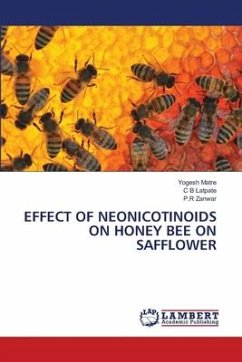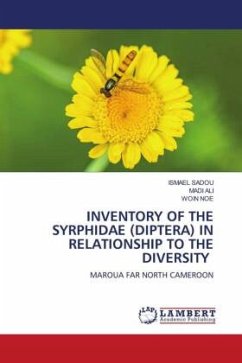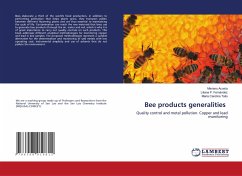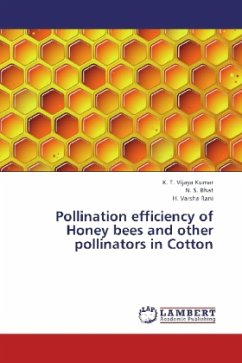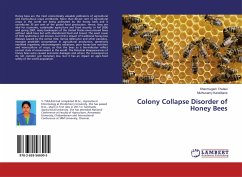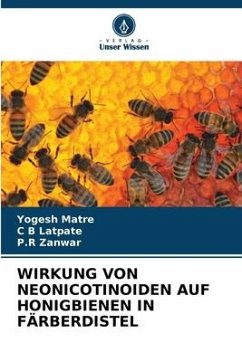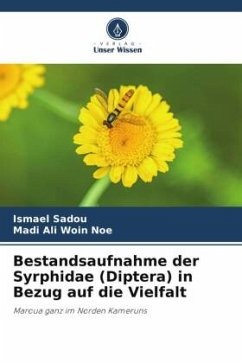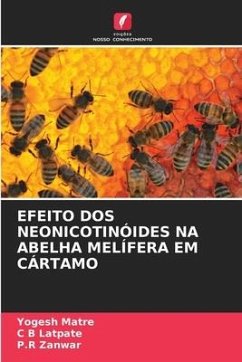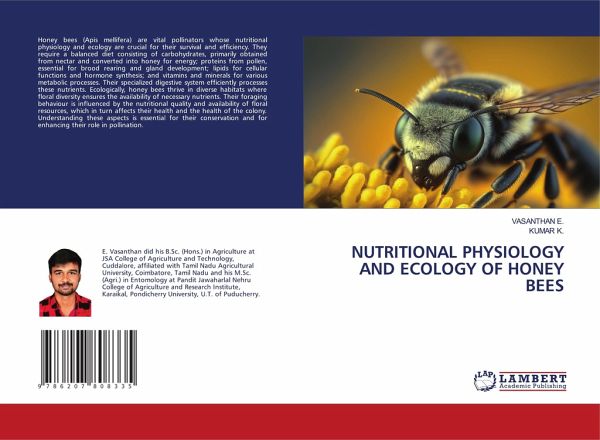
NUTRITIONAL PHYSIOLOGY AND ECOLOGY OF HONEY BEES
Versandkostenfrei!
Versandfertig in 6-10 Tagen
29,99 €
inkl. MwSt.

PAYBACK Punkte
15 °P sammeln!
Honey bees (Apis mellifera) are vital pollinators whose nutritional physiology and ecology are crucial for their survival and efficiency. They require a balanced diet consisting of carbohydrates, primarily obtained from nectar and converted into honey for energy; proteins from pollen, essential for brood rearing and gland development; lipids for cellular functions and hormone synthesis; and vitamins and minerals for various metabolic processes. Their specialized digestive system efficiently processes these nutrients. Ecologically, honey bees thrive in diverse habitats where floral diversity en...
Honey bees (Apis mellifera) are vital pollinators whose nutritional physiology and ecology are crucial for their survival and efficiency. They require a balanced diet consisting of carbohydrates, primarily obtained from nectar and converted into honey for energy; proteins from pollen, essential for brood rearing and gland development; lipids for cellular functions and hormone synthesis; and vitamins and minerals for various metabolic processes. Their specialized digestive system efficiently processes these nutrients. Ecologically, honey bees thrive in diverse habitats where floral diversity ensures the availability of necessary nutrients. Their foraging behaviour is influenced by the nutritional quality and availability of floral resources, which in turn affects their health and the health of the colony. Understanding these aspects is essential for their conservation and for enhancing their role in pollination.





